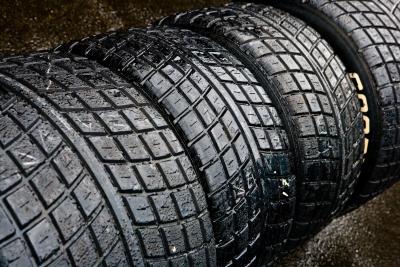
Run-flat tires are a kind of tire that can suffer a blowout without actually going flat; this is made possible by the fact that the tires are actually supported by reinforced sidewalls that take over if the tire deflates, according to Edmunds.com. The tires are being used more frequently in the production of new cars, not only for their safety features but also because they, like traditional tires, can be repaired.
Edmunds.com reports that though repair is possible, the presence of tire pressure monitor systems prevents the use of typical products on the market, such as "air in a can" sealant mechanisms.
Repair guidelines differ for each brand of run-flat tire. Some brands, such as Michelin, strongly recommend that all tires be inspected and repaired only by authorized dealers. The maintenance manual that came with the vehicle will contain more information specific to the car.
Run-flat tires that have been driven past their limit, which varies from car to car and tire to tire, often have to be replaced even if the damage appears minimal.
According to Edmunds.com, run-flat tires cost anywhere between $150 and $250 depending on the size needed for the vehicle, as of January 2010.
Run-flat tires are generally in stock at dealer repair shops that sell cars equipped with the tires. They can also be found online in some cases.
Never attempt a repair without first consulting the maintenance manual specific to your vehicle, and never attempt a repair that seems too complicated. Because of the tire pressure monitoring system that comes with any car equipped with run-flat tires, repairs should be completed with the utmost care.